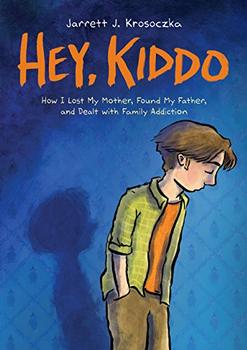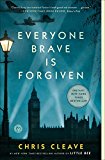Summary | Excerpt | Reviews | Beyond the book | Read-Alikes | Genres & Themes | Author Bio

David Small may be best known as the illustrator (and sometimes author) of award-winning picture books, from Imogene's Antlers to The Gardener, many of them co-created with his wife Sarah Stewart. Small's 2009 graphic memoir, Stitches, however, showcased his true sophistication as a storyteller and cartoonist - the harrowing memoir of his childhood was a finalist for the National Book Award. Now, in Home After Dark, Small again crafts a stunningly indelible, dark portrait of youth and adolescence in the mid-twentieth century in a graphic novel written from a child's point of view but decidedly for adults.
As Home After Dark opens, 13-year-old Russell Pruitt spends much of his time hiding away from his parents' increasingly vitriolic fights. Their acrimony results in a divorce, and Russell's dad, a Korean vet, packs up their possessions and heads with Russell to California, in search of "that dream of sun, sand and golden bodies." The California depicted in film, however, is somewhat elusive, as the father and son travel from Pasadena (where Russell's aunt refuses to house a teenage boy in her spotless, sterile home) northward to a small town, Marshfield, which Russell's dad characterizes as "Anywhere, USA."
If Marshfield is "Anywhere," though, that means that anywhere (and everywhere) is a façade hiding violence and bigotry. It's the 1950s, and despite America's sunny self-image, racism, homophobia and intolerance run rampant, especially among the verbally abusive boys at Russell's school. There's also a serial animal killer on the loose in Marshfield, which justifiably unsettles the animal-loving Russell (whose father's heartlessness is highlighted early in the novel, when he rejects Russell's pleas to adopt a stray puppy, who is promptly run over by a semi truck).
At first, Russell evades the unwelcome attentions of a group of bullying boys by befriending a lonely boy named Warren McCaw, who offers to show Russell how to become "invisible" by sneaking out of school through a back door. Warren cements Russell's loyalty by buying him snacks and showing him how to shoot a gun, but when confronted by Warren's sexuality, Russell panics and flees into the company of a group led by a cruel boy named Kurt - a decision that eventually leads to tragedy.
Small's novel is, astonishingly, told with a bare minimum of language. Many scenes unfold without any dialogue at all; instead, Small uses a combination of cartoon panels (as many as six or eight per page) and more expansive full-page drawings, which flow together effortlessly for the reader, and result in pacing that is both propulsive and reflective. Throughout, Small excels in conveying a wealth of emotions in facial expressions, and he doesn't shy away from haunting, even disturbing images, especially of the slaughtered animals (whose desperation and helplessness seems to parallel Russell's own). Small even graphically portrays Russell's physical maturation gradually over time, as Russell - still clearly a boy at the novel's opening - takes on the lanky angularity of adolescence as the novel progresses.
Home After Dark powerfully conveys the psychic and societal damage wrought by a culture of toxic masculinity. Russell is so unsure about which modes of masculinity are acceptable, his self-image so malleable and distorted (brilliantly portrayed as Russell examines his warped reflection in a Christmas tree bulb and, later, in a spoon), that he finds it almost impossible to trust anyone - including himself and, most poignantly, the Chinese immigrant family the Mahs, whose kindness Russell first betrays and then only reluctantly acknowledges and accepts. Nevertheless, the novel's closing pages - as Russell finds himself in an unexpected state of grace - offer a glimpse of hope for a better, kinder future.
![]() This review was originally published in The BookBrowse Review in September 2018, and has been updated for the
October 2019 edition.
Click here to go to this issue.
This review was originally published in The BookBrowse Review in September 2018, and has been updated for the
October 2019 edition.
Click here to go to this issue.

If you liked Home After Dark, try these:

by Jarrett J. Krosoczka
Published 2018
Hey, Kiddo is a profoundly important memoir about growing up in a family grappling with addiction, and finding the art that helps you survive.

by Chris Cleave
Published 2017
From the author of the #1 New York Times bestselling Little Bee, a spellbinding novel about three unforgettable individuals thrown together by war, love, and their search for belonging in the ever-changing landscape of WWII London.
Your guide toexceptional books
BookBrowse seeks out and recommends the best in contemporary fiction and nonfiction—books that not only engage and entertain but also deepen our understanding of ourselves and the world around us.